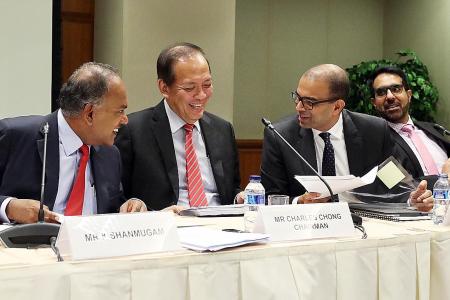Calibrated approach can address free speech fears
A calibrated approach can be adopted to address concerns that overly broad measures to tackle online falsehoods may curtail free speech, said a parliamentary committee set up to look into fake news.
The committee had also considered if the freedom of speech protects falsehoods, whether legal action would have a "chilling effect" on speech and whether legal action would undermine critical thinking.
"No representor gave any convincing reason why falsehoods should be protected by the right to freedom of speech," said the Select Committee on Deliberate Online Falsehoods in a 176-page report released yesterday.
The committee said it found arguments on how online falsehoods harm democracy and are not worthy of protection useful. These falsehoods hurt democracy as they crowd out reliable news and divert attention from substantive issues, among other things.
"Online falsehoods harm democracy and the genuine contestation of ideas in the 'marketplace'; the latter is what the freedom of speech serves to protect," it added.
As for whether laws against online falsehoods would have a chilling effect, it noted that social news website Mothership testified that they did not see a drop in traffic, or engagement on its platform as a result of being covered by the Broadcasting Act licensing regime.
'CHILLING EFFECT'
"The prospect of a 'chilling effect' should be dealt with through calibration in the powers deployed; the answer cannot be to do nothing at all," it said.
On concerns that laws against fake news would affect critical thinking, the committee said some saw legal action as complementary to media literacy education.
At a press conference yesterday on the committee's report, Law and Home Affairs Minister K. Shanmugam also addressed concerns about free speech, saying the committee had discussed extensively the balance between what is private and what has public impact.
While some members, like himself, were very concerned about the impact of falsehoods on public institutions, others such as Mr Pritam Singh raised the need to strike a balance between dealing with that and personal messages that do not have a public impact, said Mr Shanmugam, a committee member.
"If you are sending a message to somebody... who doesn't have a wider circulation, and it's a purely private message about your family, then we should be careful about intervening in that," he added.
Get The New Paper on your phone with the free TNP app. Download from the Apple App Store or Google Play Store now



